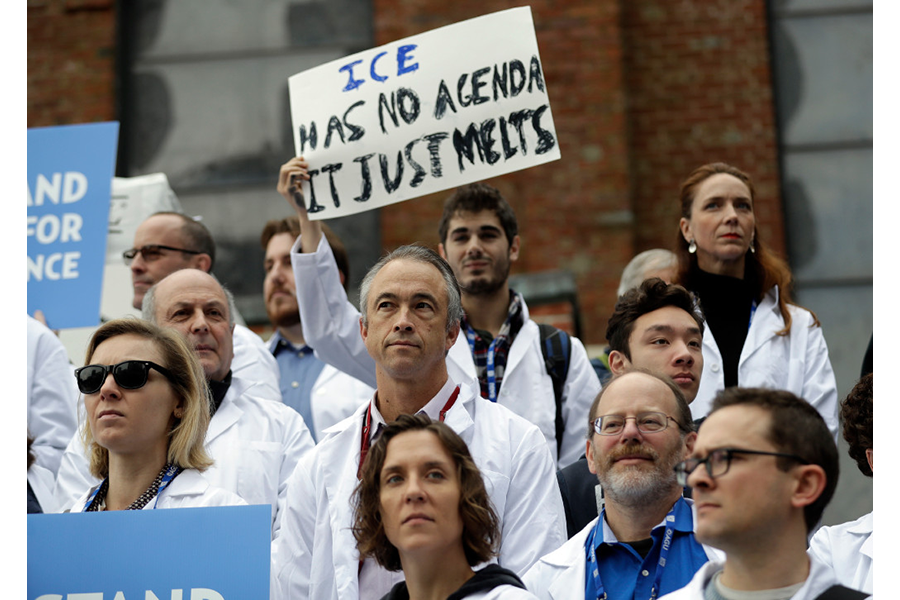In Trump's America, we may see more scientists running for office
Loading...
Last December, marine biologist Gianna Pantaleo attended the fall meeting of the American Geophysical Union. Pantaleo, who works at the University of California at Santa Barbara, was presenting research on how climate change has damaged coral reefs.
“We're at this pivotal point where we really need to worry about our oceans,” she told The Washington Post. “And it's kind of heartbreaking because you know you're not going to have support” from the federal government.
Since November, Pantaleo and other scientists have watched the incoming Trump administration with growing alarm. In December, the Department of Energy refused a request to disclose the identities of employees who have worked on climate change. Since then, several of Trump’s Cabinet nominees have voiced doubts on humanity’s role in climate change, and other Republicans have proposed cutting NASA’s Earth sciences program.
More and more, scientists were asking themselves how they would be able to save this and other federal science programs. For some, the answer has been: by running for office themselves. Borrowing a page from women’s and veterans’ groups, a new organization called 314 Action aims to support scientists in state and Congressional races.
“There's nothing in our Constitution that says we can only be governed by attorneys,” the group’s founder, Shaughnessy Naughton, told The Washington Post last week. “Especially now, we need people with scientific backgrounds that are used to looking at the facts and forming an opinion based on the facts.”
Naughton, a former chemist and medical researcher, knows the challenges of getting scientists to enter politics firsthand. In 2014 and 2016, she ran for Congress in Pennsylvania. “I was locked out of a lot of traditional Democratic donors,” she told the Post.
On top of fundraising hurdles, scientists who decide to enter politics risk forfeiting careers in academia. As explained by the Atlantic’s Ed Yong, “Scientific careers are built on continuity and perseverance: Years as a graduate student give way to years in postdoctoral positions, which bleed into professorships. If you step away, it can be hard to step back.”
But with scientists’ federal support under threat from Congress and the Oval Office, Naughton is confident that more of her colleagues will be willing to take that risk, and started 314 Action to support them.
The next step for 314 Action comes on March 14th – often known as Pi day – when it will hold an online information session for scientists interested in running for office.
To gain 314 Action’s support, these candidates will need to agree to back funding for greater research into climate change and alternative energy, both of which appear on 314 Action’s “Issues” page. The group also calls for investment in STEM education, and the repeal of a 1996 law that prohibits the Centers for Disease Control from researching gun violence.
Aspiring scientist-politicians will also need to be Democrats to run with 314 Action. Naughton explains that, with Republican and Democratic platforms differing starkly on the issue of climate change, “We felt we had to pick a team.”
The decision to go partisan could pose a challenge for the scientific community. President Trump has dismissed what he calls “politicized science.” Concerned that attacks like these could impact research funding, the American Geophysical Union has stated, “it is incumbent upon scientists to communicate their findings in ways that portray their results and the results of others, objectively, professionally, and without sensationalizing or politicizing the associated impacts.”
Running for office may require scientists to decide what “politicizing” their research means. Even so, Naughton considers it a step worth taking. “People might think that science is above politics, as it should be, but increasingly we see that politics is not above bringing itself into science. [But at] a certain point, there's diminishing returns to not getting involved.”








